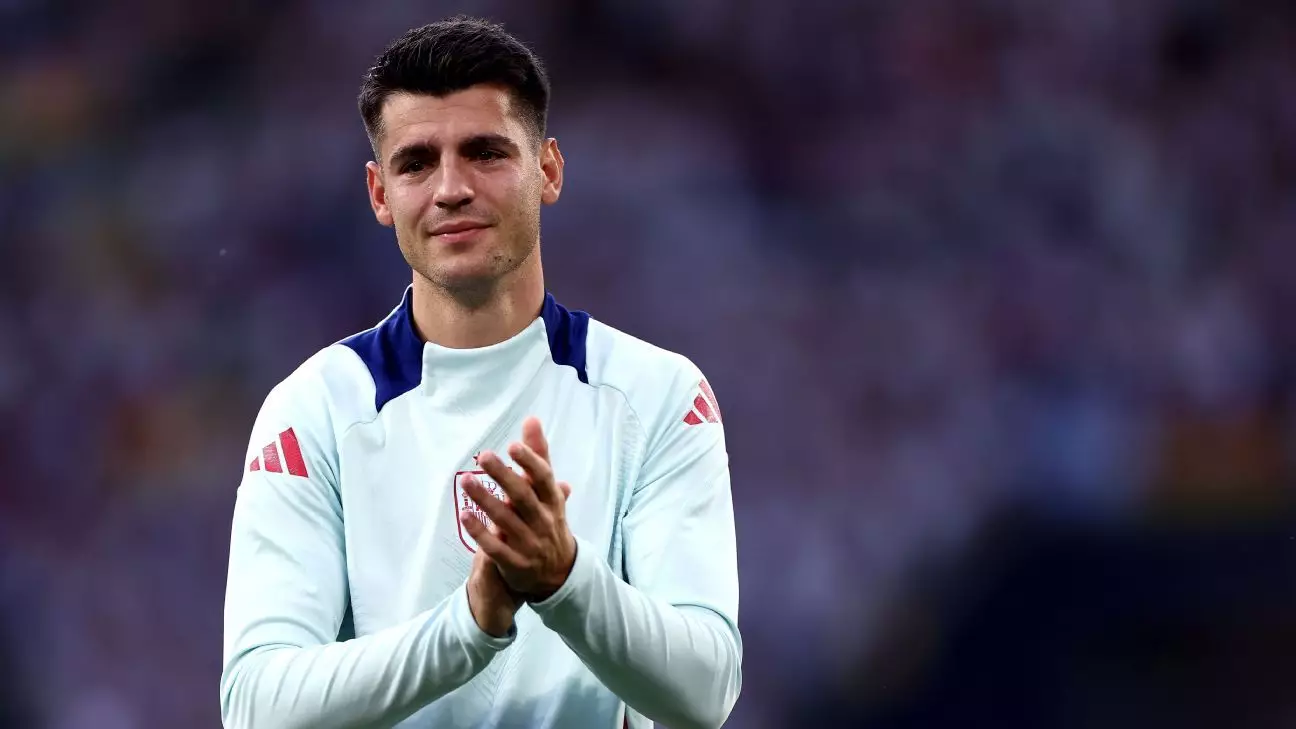Álvaro Morata, the talented Spanish forward, has recently opened up about the psychological battles he faced during his career, particularly highlighting his experiences of depression and panic attacks. This revelation paints a stark picture of the often-unseen pressures that professional athletes endure. Morata’s candidness sheds light on how intense public scrutiny and personal setbacks can transcend the realm of sports, affecting not only mental wellbeing but also familial dynamics. The pressure to perform at the highest level is an undeniable burden, one that lies heavily on the shoulders of talented individuals like Morata, who must grapple with both expectations and their mental health.
In a world captivated by sporting excellence, Morata’s story serves as a poignant reminder that the accolades athletes strive for often come at an immense personal cost. The psychological ramifications of disappointing performances are magnified in the public eye, leading to a cycle of despair that can feel inescapable. As he mentioned in an interview with COPE, “When you have really tough moments, the job you do doesn’t matter.” This underscores the universality of struggles with mental health, showcasing that no personal achievements can erase the profound emotional and psychological challenges faced by individuals in high-pressure situations.
Reflecting on his darkest moments before leading his country to glory in the European Championship, Morata revealed that he contemplated stepping away from football entirely. The emotional toll was palpable, as he candidly recalled feeling “embarrassed” in social situations, particularly in the company of his children. This sentiment resonates deeply with many who understand the notion of public scrutiny, where every action is subject to critique. The culmination of Morata’s mental health struggles led him to a crossroads—one that made him reconsider his place in the national sport and ponder whether the sacrifices were indeed worth it.
His resolve gave way to a transformative decision to transfer to AC Milan, signaling a new chapter not just in his career but in his mental health journey. In football, as in life, change can often act as a catalyst for healing. Morata’s switch from Atlético Madrid to Milan was more than a strategic career move; it represented a fundamental shift towards prioritizing his own wellbeing over external expectations. “I thought I wouldn’t be able to put my boots on again,” he confessed, illustrating the severe impact of his mental state on his professional aspirations.
Morata’s transition to Milan also highlights a significant cultural contrast where athlete-fan relationships differ from his experiences in Spain. He expressed relief at the respect he receives in Italy, a notion that provides a valuable lens through which to understand the relationship between sports culture and mental health. Morata’s comments reflect a yearning for a more supportive environment—one where he felt valued for his contributions on the field rather than being scrutinized for past failures.
The shift from a culture rooted in intense critique to one that values respect and personal space seems to have had a rejuvenating effect on Morata, allowing him to rediscover his love for football away from the prickly public opinion that often dominated his time in Spain. His analogy about playing for two teams in Italy emphasizes this newfound freedom and suggests that a more positive relationship with fans can facilitate better mental health for athletes under pressure.
The Road Ahead: A Reflection on Recovery
As Morata prepares to represent Spain once again in upcoming Nations League matches, his journey embodies more than just professional triumph— it is a testament to resilience. By sharing his experiences openly, he not only brings attention to the crucial issue of mental health in sports but also encourages others who may be facing similar struggles. His story reinforces the idea that vulnerability does not signify weakness but rather a strength that can foster healing and connection.
In the landscape of professional sports, where narratives are often dominated by victories and defeats, Morata’s candid exploration of his emotional challenges provides an essential reminder for athletes and fans alike: mental health matters. Ultimately, Morata’s journey demonstrates that through ongoing battles and eventual triumphs, there lies hope for renewed paths ahead—both in football and in life.

